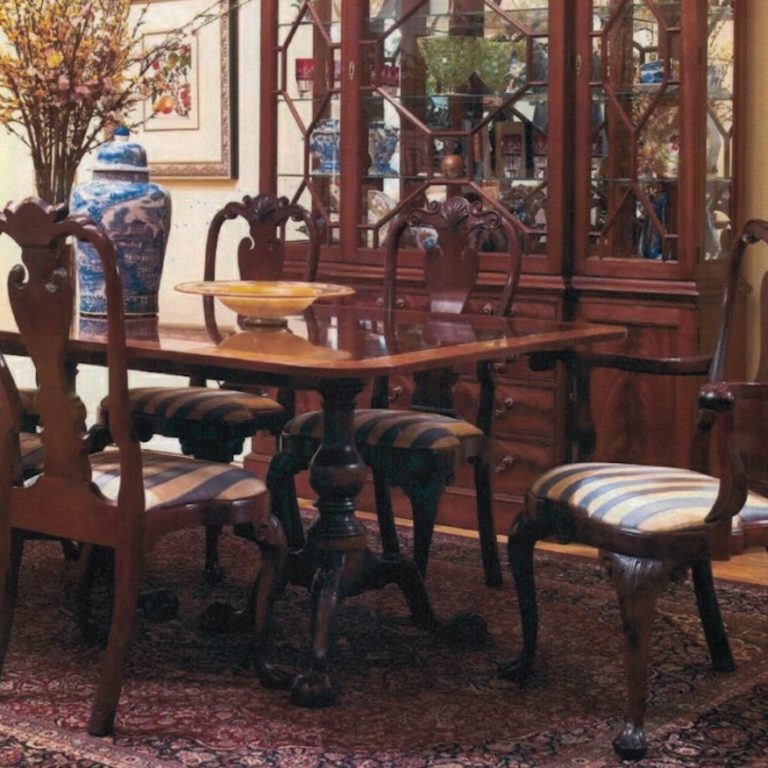
A Glance at the Past: The History of Heywood Wakefield Furniture
Founded in 1897, the Heywood Wakefield Company is an enduring presence in the American furniture industry. Recognized for their distinct mid-century modern styles, their furniture designs continue to resonate in contemporary times. But to truly appreciate the significance of Heywood-Wakefield, we must journey back to its humble beginnings.
The Formative Years: 1897-1915
The Heywood-Wakefield story begins in Gardner, Massachusetts, an area now often referred to as “Chair City.” The company was created through a merger between the Wakefield Rattan Company (founded by Cyrus Wakefield in 1855) and Heywood Brothers & Company (founded by Walter and Levi Heywood in 1826). Both were flourishing companies in their own right, with Wakefield Rattan specializing in wicker and rattan furniture and Heywood Brothers in wood furniture. The merger began a journey that would forever influence the furniture industry.
Transition and Innovation: 1916-1936
The early 20th century marked a significant shift in Heywood-Wakefield’s designs, with an increased focus on hardwood furniture. The company quickly adopted technological changes, implementing an innovative steam-bending technique allowing unprecedented fluidity in wooden furniture design.
The Streamline Modern period of the 1930s marked a pivotal moment for Heywood-Wakefield. The company’s designers fully embraced this innovative style, characterized by smooth, curved surfaces and the absence of ornamentation. They showcased their new designs at the 1939 World’s Fair in New York, marking the advent of Heywood-Wakefield’s iconic mid-century modern furniture line.
The Golden Era: 1937-1950s
This period was undoubtedly the heyday of Heywood-Wakefield. The company’s sleek, functional, and elegant designs resonated perfectly with the optimism and modernity that marked the post-war era. Constructed using solid birch and maple, their furniture was noted for its sturdiness and longevity.
Key pieces from this era include the Sculptura and Sable series. Known for their sculptural qualities, these pieces showcased Heywood-Wakefield’s commitment to creating aesthetically pleasing and highly functional furniture.
Challenges and Resurgence: 1960s-Present
The 1960s marked a downturn for Heywood-Wakefield. Consumer tastes were evolving, and the company struggled to adapt. Unable to compete with lower-cost furniture imports, Heywood-Wakefield closed its doors in 1981.
However, the company found a new lease of life in the late 1990s. The brand was revived by South Beach Furniture, who saw value in the distinct Heywood-Wakefield style. Embracing the nostalgia for mid-century modern design, the company began producing replicas of popular Heywood-Wakefield designs. Original Heywood-Wakefield pieces are sought-after collectors’ items today, and new pieces pay homage to the company’s vintage designs.
The legacy of Heywood-Wakefield lies in its innovation and design prowess, shaping the American furniture landscape with its distinctive mid-century modern style. As we look at the iconic curves and polished surfaces of Heywood-Wakefield furniture, we see not just a piece of furniture but a slice of American history, beautifully preserved and celebrated. Their impact resonates today in every piece of furniture, echoing their signature style and exceptional craftsmanship.
Standing Our Above the Crowd
Heywood-Wakefield is one of the most recognizable brands in the history of American furniture manufacturing, and its enduring popularity can be attributed to a combination of quality, style, and a unique story of resilience and revival.
Unparalleled Quality
The quality of Heywood-Wakefield furniture sets it apart. Made primarily from solid Northern Yellow Birch, a robust hardwood known for its durability and unique graining, these pieces were designed to withstand the test of time. Heywood-Wakefield’s attention to detail and commitment to craftsmanship is evident in the construction of their furniture. Each piece reflects a standard of excellence, from the fine joinery to the signature Champagne and Wheat finishes.
Distinctive Style
Heywood-Wakefield’s signature aesthetic, characterized by fluid, sleek lines and a lack of ornamentation, is a hallmark of the mid-century modern style. The designs are timeless, seamlessly blending form and function. They’ve remained highly sought after by collectors, designers, and homeowners looking to add a touch of vintage elegance to their spaces.
A Unique History
Heywood-Wakefield’s story – from its 19th-century beginnings to its 20th-century zenith, followed by a decline and then a resurgence – adds depth and character to the brand. This narrative gives each piece of Heywood-Wakefield furniture a sense of history and uniqueness. The company’s revival in the late 20th century speaks to the enduring appeal of its designs.
Innovative Design Techniques
Heywood-Wakefield pioneered steam-bent wood in furniture, a technique that allowed them to create the sleek, fluid lines characteristic of their designs. They were also known for their innovations in manufacturing and their embrace of modern design principles, such as the Streamline Modern style of the 1930s.
Sustainability
Although sustainability wasn’t a widely recognized concept during Heywood-Wakefield’s peak years, the brand’s ethos aligns with today’s sustainability values. The company’s use of solid wood, as opposed to veneers and other composite materials, makes their furniture more durable and long-lasting. This longevity reduces the need for replacement and waste. Furthermore, their choice of Northern Yellow Birch, a locally sourced wood, supports sustainable forest management practices.
In conclusion, Heywood-Wakefield’s blend of quality, style, innovation, and a unique, compelling history has helped the brand stand out in the crowded field of furniture manufacturing. Whether it’s an original vintage piece or a newer replica, owning a piece of Heywood-Wakefield furniture is akin to possessing a part of American design history.
Timeless means Timeless
Heywood-Wakefield furniture, characterized by its mid-century modern aesthetic, is remarkably adaptable to contemporary interiors. Its timeless appeal and superior craftsmanship make it an ideal choice for modern homes. Here’s how you can incorporate Heywood-Wakefield pieces into your living space:
Living Room
The sleek lines of a Heywood-Wakefield coffee table or end table can be a perfect addition to a contemporary living room. The pieces’ warm wood tones can help create a cozy atmosphere, and their clean, simple lines allow them to fit seamlessly with various interior styles. Pair it with a modern sofa for a pleasing contrast, or go full retro with a vintage-style couch.
Dining Room
Heywood-Wakefield dining sets, famous for their style and durability, can become the centerpiece of your dining space. The simple, elegant designs blend well with modern, minimalist aesthetics. Chairs like those from the Dog Bone series, with their distinctive curved lines, can add a touch of vintage chic to your dining area. You can also mix and match with contemporary chairs for an eclectic look.
Bedroom
The functionality and elegance of Heywood-Wakefield bedroom furniture, such as dressers and nightstands, lend themselves well to modern spaces. For example, the Sculptura series features gently sweeping curves and integrated drawer pulls that can bring a soft, organic touch to a contemporary bedroom. The solid wood construction also ensures longevity, an essential quality for frequently used furniture like dressers.
Home Office
Heywood-Wakefield desks, bookcases, and chairs can create a stylish and comfortable home office space. The warmth of the wood can make a home office feel more inviting, while the simple, clean designs can help reduce visual clutter, promoting focus and productivity.
In terms of color schemes, Heywood-Wakefield’s signature Wheat and Champagne finishes work well with various colors. You can pair them with neutral tones for a subtle, sophisticated look. Or you can use brighter colors for a more vibrant, energetic atmosphere.
The key to using Heywood-Wakefield furniture in a modern home is balance. While the pieces are vintage, their designs are inherently timeless, and thus they pair well with contemporary elements. Combining vintage Heywood-Wakefield furniture with modern pieces can create a unique, personalized space that represents a fusion of past and present.


